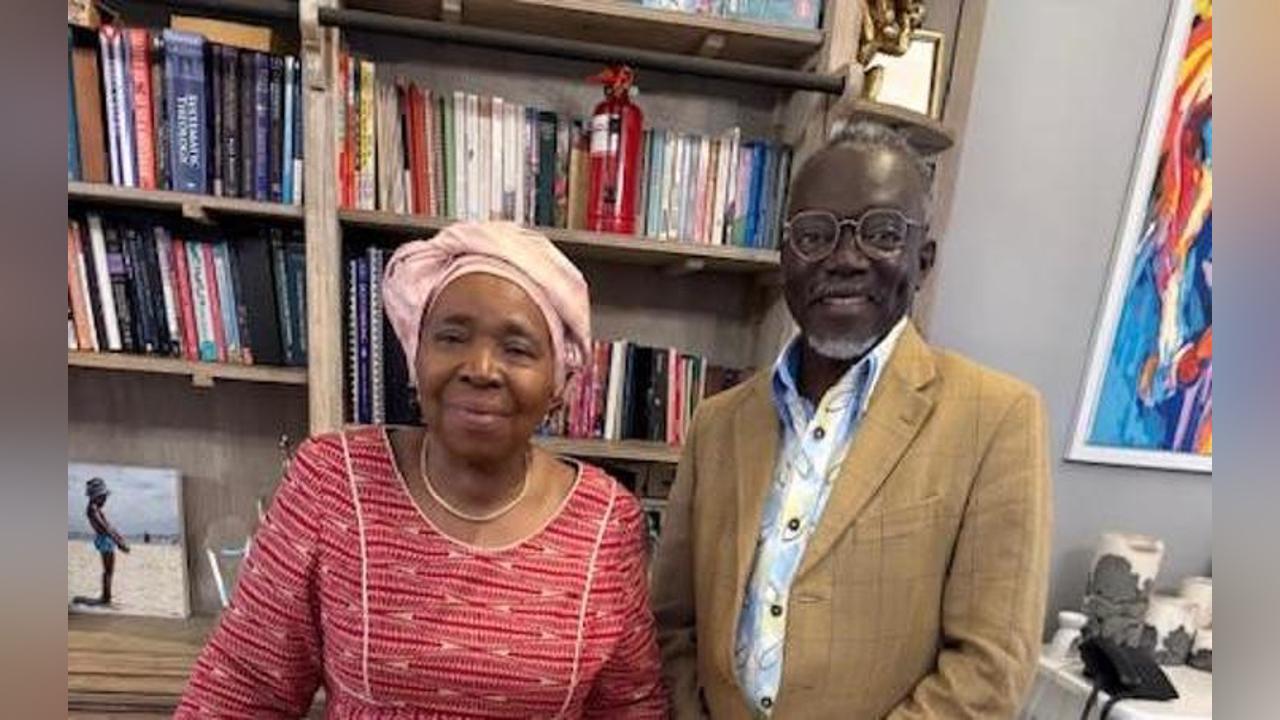Africa-Press – Ghana. Two of Africa’s most influential minds have issued a rallying call for a decisive pivot from dependency to self-reliance of the continent through rapid industrialisation.
They urged the continent to prioritise industrialisation, rural revitalisation, and generational planning to reclaim its development narrative.
In a thought-provoking meeting held in Johannesburg, South Africa, Dr Nkosazana Dlamini-Zuma, originator of the African Union’s Agenda 2063, and Professor Douglas Boateng, an industrialisation strategist, converged on a shared concern – Africa’s continuing economic vulnerability despite its resource abundance.
The meeting interrogated Africa’s developmental inertia, challenging leaders across sectors to choose progress over rhetoric.
The dialogue revolved around eight interconnected priorities, including the African Continental Free Trade Area (AfCFTA), inclusive industrialisation, the UN Sustainable Development Goals (UNSDGs), and the Agenda 2063 blueprint.
Both leaders emphasised the urgency of translating policy into productivity.
“Agenda 2063 was never about paper,” said Dr Dlamini-Zuma. “It was and remains about purpose – about giving our grandchildren a functioning continent, not a deferred dream.”
Prof Boateng reiterated the need for long-term vision. “Leadership is not about titles or applause. It is about foresight – about planting trees under whose shade we may never sit.”
They emphasised that Africa must not be a continent of unfulfilled plans.
Instead, it must harness its human and natural capital to drive production, refine resources locally, and empower youth and women as co-authors of transformation.
A major concern expressed by the leaders was the neglect of rural economies – a quiet crisis that continues to fuel urban migration and hopelessness among Africa’s youth.
“Our youth are not fleeing their homes; they are fleeing hopelessness,” Dr Dlamini-Zuma remarked. “If we take roads, factories, and innovation to them, they will stay. They will build.”
Prof Boateng decried the self-defeating pattern of exporting raw materials and importing finished goods. “We import what we can produce. We export what we should refine. It is poetic. And it is painful,” he said. “Every unbuilt factory is a missed future.”
Addvocating a shift from promises to practice, the two experts argued that AfCFTA, the UNSDGs and Agenda 2063 should not operate in silos but rather function as interlinked instruments for continental renewal.
“AfCFTA must become more than a treaty. It must be the artery through which African productivity flows,” said Dr Dlamini-Zuma.
The conversation also underlined the need for a deliberate skills revolution to equip Africa’s youth to innovate and lead change.
Technology, creativity and vocational excellence, they said, must be central to the continent’s industrial journey.
Equally pressing is the need to reclaim Africa’s story. “Development is not a theory,” said Prof Boateng. “It is logistics. It is ports. It is accountability. These frameworks are not decorative; they are tools. And tools must be used.”
Dr Dlamini-Zuma added that Africa must reframe its identity. “Women must be visible and active in every area of human endeavour – not just as recipients of policy, but as co-authors of Africa’s transformation; in politics, science, enterprise and beyond.”
The meeting ended not with ceremonial fanfare but a sober call to action.
Prof Boateng cautioned that vision without continuity leads to mediocrity. “Africa is not short on vision,” he said. “It is short on continuity. The continent must master consistency to break mediocrity’s hold.”
Dr Dlamini-Zuma added, “The Africa We Want is not a slogan. It is a daily decision – one that must be made across ministries, boardrooms, farms, homes and schools.”
Their message was clear: the continent’s future lies not in external validation but in bold, unified internal resolve. Africa must build – or continue to beg.
Edited by Beatrice Asamani Savage
Dr. Nkosazana Dlamini-Zuma is the former Chairperson of the African Union Commission, a long-serving government minister, and the architect of Agenda 2063; Africa’s strategic roadmap for transformation.
Professor Douglas Boateng is a globally recognised chartered engineer, a thought leading board room governance advocate, social entrepreneur, industrialisation strategist and author.
Source: Ghana News Agency
For More News And Analysis About Ghana Follow Africa-Press







